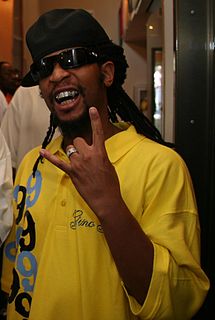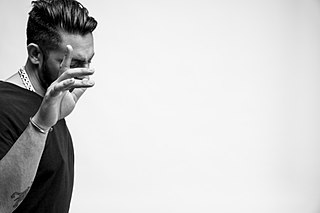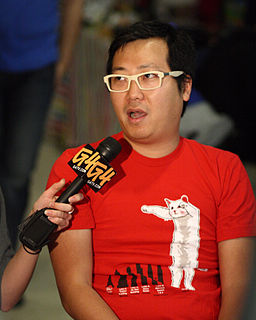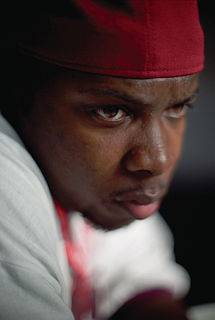A Quote by Chuck D
I don't think a lot of people have been privy to understanding that there's this talent in hip-hop all over the earth that's just as good. It's just that everything out of the U.S. proclaims to be the best, especially L.A. and New York, being that they're the nerve centers and media capitals of the most predominantly media-emitting country in the world.
Related Quotes
In this time, we incorporate money and media, and it's split up like apartheid, where when you say "hip-hop," you think just rap records. People might have forgot about all the other elements in hip-hop. Now we're back out there again, trying to get people back to the fifth element, the knowledge. To know to respect the whole culture, especially to you radio stations that claim to be hip-hop and you're not, because if you was a hip-hop radio station, why do you just play one aspect of hip-hop and rap, which is gangsta rap?
There needs to be structures in place to do something about misrepresentation about hip hop. When awards are given out and the media talk about hip hop, they're confused because they haven't done their homework on it so you have a case where there's an award for the most pop song in the world and it's called 'hip hop'.
I think, ironically, the media's been good for America, but Trump's been good for the media. He's revitalized The New York Times and CNN - it's never had so much integrity and so much power ever, and that's because being attacked by constant authoritarians and fascists with an agenda has actually got them to sharpen up and to get back to base principles about what the media should actually be. It's also that the circulation boost has removed this horrible, incipient commercial pressure that compromises media.
Socially, hip-hop has done more for racial camaraderie in this country than any one thing. 'Cause guys like me, my kids - everyone under 45 either grew up loving hip-hop or hating hip-hop, but everyone under 45 grew up very aware of hip-hop. So when you're a white kid and you're listening to this music and you're being exposed to it every day on MTV, black people become less frightening. This is just a reality. What hip-hop has done bringing people together is enormous.
One of the problems with any kind of talking about the media landscape is that we've just been through an unusually stable period in which, for fifty years, English language media was centered in three cities - London, New York, and Los Angeles - around a very stable group of people working in a relatively stable set of media.
You have a lot of educating to do hip-hop wise in Europe. When you tour, when you go out there, most of the people that come see you at the venue listen to a lot of different kinds of music, not only hip-hop; they're not heads. From time to time you're going to do a little concert in front of three or four hundred people that are only hip-hop heads and they're going to understand and know all about the gimmicks and the swagger but the rest of the people are just regular European people that listen to pop [or] rock & roll.
Media is everything, and when you live in Los Angeles and you live in New York, it's almost impossible to run into a conservative point of view because the conservatives that exist in Hollywood, where much of the media's done, and the conservatives that live in New York where a lot of the media's done are fearful of even expressing their conservative point of view.
A lot of the commercial expression of hip-hop leaves a lot to be desired - but then, there's a lot of whack gospel music, but I'm not leading a crusade against it. Of course, the vices of hip-hop are far more influential, I understand. But the good that hip-hop transmits, the power of the culture to rally the best of our protest, and uplift, and resistance, traditions, is often unfairly overlooked.




































